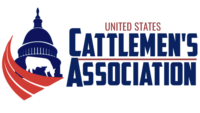A new public-private partnership has been launched to advance a shared vision for enhanced food traceability in conjunction with the requirements of the Food Traceability Rule, which implements FSMA 204(d). Although the rule, for which industry compliance is due in January 2026, requires coordination across sectors, industries, company sizes and business models for traceability, it does not address how that coordination is to be achieved.
The Partnership for Food Traceability, an independent, sector-neutral forum for industry, regulators, industry associations, technical experts and technology vendors, is seeking to address that gap. Not only is PFT the only independent forum that brings all parts of the supply chain together to make critical implementation decisions and define a shared vision for food traceability, but it also includes participation from FDA, state and local officials. Together, the partnership will allow for industry and regulators to learn from each other while working to advance traceability.
With a focus on defining consensus business and functional requirements for traceability, PFT is a forum for the exchange, gathering and use of traceability data among supply chain partners to deliver a common vision for traceability across sectors, industries, associations and consortia. Additionally, PFT is intended to provide a forum for technical implementation discussions between food industry stakeholders. The group will work toward defining a consistent set of business and functional requirements for traceability, a decision-making mechanism on industry’s traceability implementation and an organized plan for how the industry can successfully migrate to enhanced traceability. Resources and materials created via the public-private partnership to implement and comply with traceability requirements will be open-source. The organization will also identify additional pilot needs and coordinate public-private engagement in future pilots.
“The goal of the partnership is to create an overarching vision and plan for traceability that is industry driven – because it's an industry problem to solve,” said Ben Miller, an advisor to PFT and EVP of regulatory and scientific affairs for The Acheson Group. “But it's also important that this group has the ability to collaborate with regulators, so that what we create works from a regulatory standpoint. That's one thing that clearly makes this group unique is that it provides that forum.”
Although the Food Traceability Rule’s requirements for enhanced traceability and recordkeeping for certain foods do not mandate electronic traceability, the rule aligns with and is supported by FDA’s New Era of Smarter Food Safety initiative, which aims to harness technology and data to advance food safety and traceability. With food companies increasingly employing electronic traceability, a tremendous momentum toward electronic traceability has been created, which has simultaneously highlighted the complexities and cross-sector interdependencies needed to achieve that goal.
“With traceability requiring a level of cross-sector, cross-industry collaboration and coordination not present in the supply chain today, PFT provides the food industry an invaluable opportunity to define the technical implementation of traceability,” said Eric Marshall, an advisor to PFT and principal of Leavitt Partners. Marshall previously helped the pharmaceutical industry establish a public-private partnership that has successfully advanced drug traceability in collaboration with FDA. “We are excited to bring all parts of the supply chain—and the good work organizations have been doing—together into one forum to chart the course ahead.”
PFT has begun its initial member sign-on period and will hold board member elections in October 2024, with a goal of holding its first board meeting Oct. 23.
Sources: The Acheson Group; Leavitt Partners








